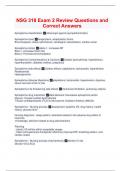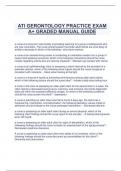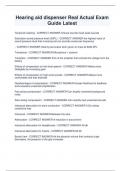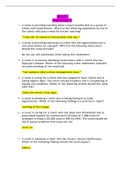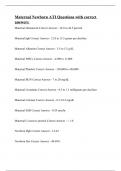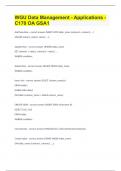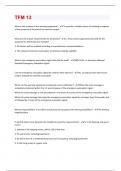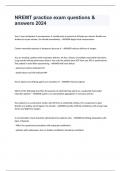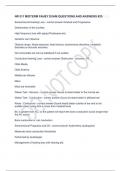Exam (elaborations)
NSG 318 Exam 2 Review Questions and Correct Answers
- Course
- Institution
Epinephrine classification Adrenergic agonist (sympathomimetic) Epinephrine Uses Anaphylaxis, anaphylactic shock, Bronchospasm, status asthmaticus, cardiogenic resuscitation, cardiac arrest Epinephrine Action Alpha 1- increases BP Beta 1- increases heart rate Beta 2- Promotes bronchodilation Epi...
[Show more]
